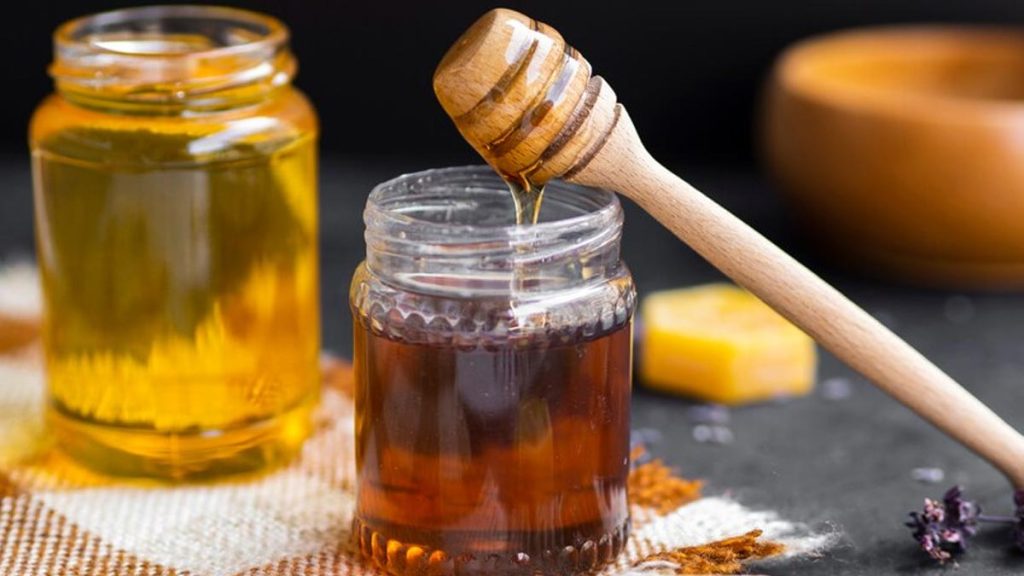As the chill of winter envelops us, staying healthy and nourished becomes a top priority. The cold weather, coupled with shorter days, often leaves our bodies feeling fatigued and more prone to illnesses. Fortunately, honey, a natural wonder, stands out as an excellent addition to your winter diet. Packed with essential nutrients and therapeutic properties, honey is not just a sweetener but a powerhouse of health benefits tailored for the winter season.
The Nutritional Profile of Honey
Honey is rich in vitamins, minerals, and antioxidants. It contains natural sugars, including glucose and fructose, which provide immediate energy. Enzymes, amino acids, and a wealth of phytonutrients in honey further amplify its health-boosting properties. The antibacterial, antimicrobial, and anti-inflammatory characteristics of honey make it an indispensable natural remedy during the winter months.
Key Benefits of Honey During Winter

1. Boosts Immunity
Honey is a natural immunity booster, owing to its antibacterial and antimicrobial compounds. Regular consumption of honey enhances your body’s ability to ward off seasonal infections such as colds, coughs, and the flu. Its antioxidants, like flavonoids, help neutralize harmful free radicals, strengthening your immune system against winter ailments.
2. Soothes Sore Throat and Cough
Winter often brings with it the discomfort of sore throats and persistent coughs. Honey acts as a natural remedy for these conditions. Its thick, soothing texture coats the throat, relieving irritation and reducing dryness. A teaspoon of honey with warm water or herbal tea provides immediate comfort, while its antimicrobial properties help heal underlying infections.
3. Natural Energy Booster
Honey serves as a quick and sustained source of energy, making it ideal for combating winter fatigue. The natural sugars in honey are easily absorbed by the body, providing a steady energy release that keeps you active throughout the day.
4. Promotes Restful Sleep
The dark, cold nights of winter can sometimes disrupt our sleep cycles. A small spoonful of honey before bed promotes natural sleep by stimulating the release of melatonin, the sleep-regulating hormone. This simple remedy ensures a restful night and rejuvenated mornings.
5. Supports Digestive Health
Winter indulgences often lead to digestive discomfort. Honey is a natural digestive aid, helping to soothe the stomach and alleviate bloating. Its prebiotic properties promote the growth of healthy gut bacteria, ensuring smooth digestion and improved nutrient absorption.
6. Hydrates and Nourishes Skin
The dry, harsh winter air can wreak havoc on your skin, causing dryness and flakiness. Honey’s natural humectant properties help lock in moisture, keeping your skin soft and hydrated. Incorporating honey into DIY face masks or using it as a lip balm alternative can protect your skin from winter’s dryness.
7. Regulates Blood Sugar Levels
Unlike refined sugars, honey has a low glycemic index, making it a healthier sweetener option. It provides a gradual release of energy without causing sudden spikes in blood sugar levels, making it suitable for individuals aiming to manage their sugar intake.
8. Improves Oral Health
Maintaining oral hygiene is vital during the winter months. Honey’s antimicrobial properties combat harmful bacteria in the mouth, reducing the risk of gum disease and cavities. It also freshens breath naturally.
9. Promotes Heart Health
Winter weather can sometimes cause blood pressure to rise, increasing the risk of heart-related issues. Honey, rich in antioxidants, improves blood circulation and reduces inflammation, supporting heart health. Its regular consumption helps maintain a healthy balance of cholesterol levels, ensuring optimal cardiovascular function.
10. Combats Seasonal Allergies
Seasonal allergies, such as sneezing, runny noses, and coughs, can persist even during winter. Regular consumption of raw honey, especially paired with warm lemon water, helps build immunity against allergens and alleviates symptoms of seasonal allergies.
How to Incorporate Honey Into Your Winter Diet
Honey’s versatility allows it to seamlessly blend into various recipes and remedies. Here are some creative ways to enjoy honey during the winter:
- Morning Tea: Add a spoonful of honey to your herbal or green tea for a natural sweetener and immune boost.
- Warm Lemon Water: Start your day with a mixture of warm water, honey, and fresh lemon juice to detoxify your system and energize your body.
- Desserts: Use honey as a natural sweetener in baked goods, yogurt, or oatmeal for a guilt-free indulgence.
- DIY Skin Treatments: Mix honey with ingredients like yogurt or aloe vera to create nourishing face masks.
- Energy Snacks: Drizzle honey over nuts, seeds, or granola for a quick energy boost.
Choosing the Right Honey
To reap the full benefits of honey, it’s essential to choose high-quality, raw, and unprocessed varieties. Manuka honey, for example, is celebrated for its superior antibacterial properties. Local honey is another excellent option, as it may help reduce the severity of seasonal allergies by exposing your body to small amounts of local pollen.
Precautions When Using Honey
While honey offers numerous health benefits, it should be consumed in moderation. Excessive intake can lead to weight gain due to its calorie content. Additionally, honey should not be given to children under one year of age due to the risk of botulism.
Honey is a timeless remedy and a versatile superfood that supports overall health and well-being, especially during the winter months. From boosting immunity and energy to nourishing the skin and soothing throats, honey proves to be an invaluable companion for the season. Incorporating honey into your daily routine can help you stay healthy, warm, and energetic throughout the winter.




